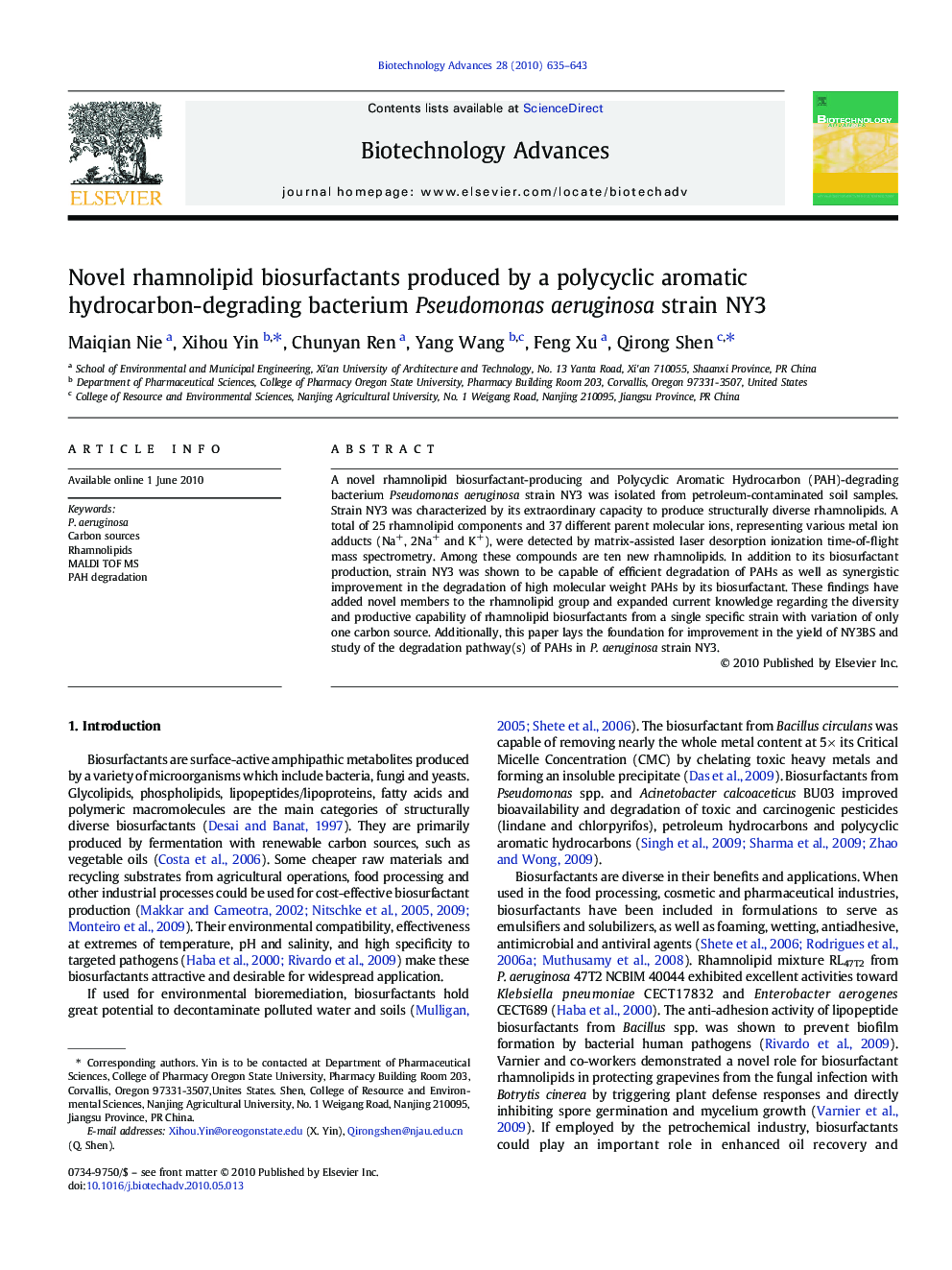| Article ID | Journal | Published Year | Pages | File Type |
|---|---|---|---|---|
| 14402 | Biotechnology Advances | 2010 | 9 Pages |
A novel rhamnolipid biosurfactant-producing and Polycyclic Aromatic Hydrocarbon (PAH)-degrading bacterium Pseudomonas aeruginosa strain NY3 was isolated from petroleum-contaminated soil samples. Strain NY3 was characterized by its extraordinary capacity to produce structurally diverse rhamnolipids. A total of 25 rhamnolipid components and 37 different parent molecular ions, representing various metal ion adducts (Na+, 2Na+ and K+), were detected by matrix-assisted laser desorption ionization time-of-flight mass spectrometry. Among these compounds are ten new rhamnolipids. In addition to its biosurfactant production, strain NY3 was shown to be capable of efficient degradation of PAHs as well as synergistic improvement in the degradation of high molecular weight PAHs by its biosurfactant. These findings have added novel members to the rhamnolipid group and expanded current knowledge regarding the diversity and productive capability of rhamnolipid biosurfactants from a single specific strain with variation of only one carbon source. Additionally, this paper lays the foundation for improvement in the yield of NY3BS and study of the degradation pathway(s) of PAHs in P. aeruginosa strain NY3.
